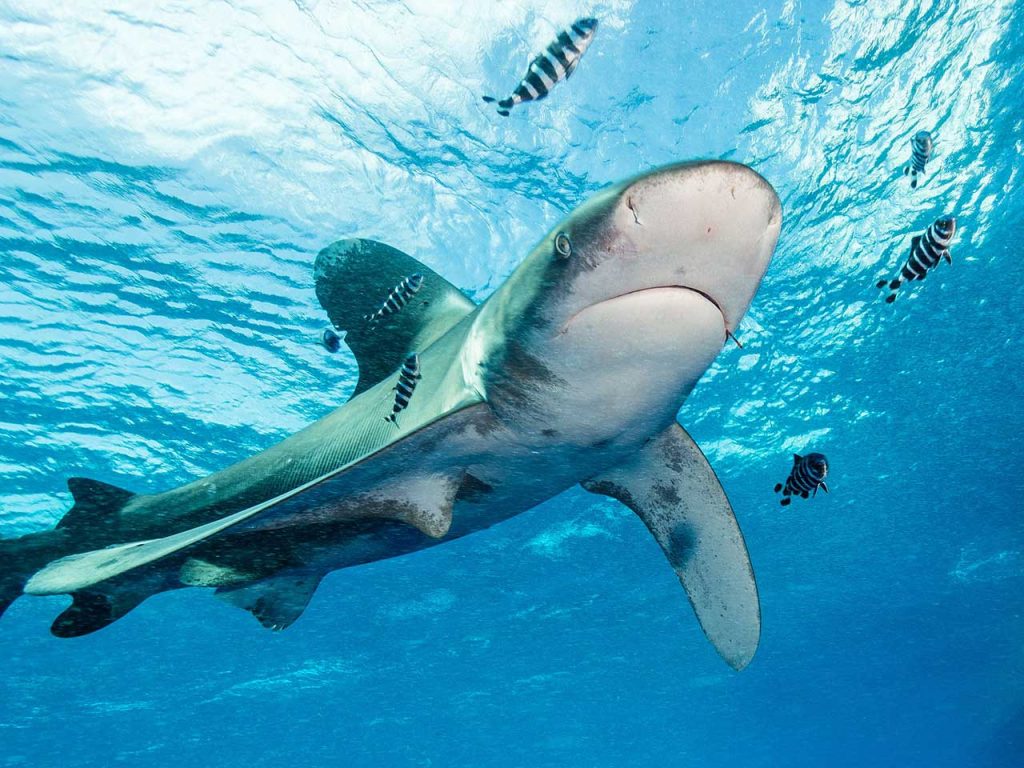Main photo credit: Alexander Vasenin, CC by SA 4.0
There was a vital conservation win for a critically endangered species of shark this week at the 13th Conference of the Parties (CoP) of the UN Convention on the Conservation of Migratory Species of Wild Animals (CMS) in Gandhinagar, India, as governments accepted the proposal to list the iconic oceanic whitetip shark for protection.
Once considered one of the most common tropical sharks in the world, according to the International Fund for Animal Welfare, the oceanic whitetip, Carcharhinus longimanus, is now one of the most endangered.
 Image: Johan Lantz, | CC BY-SA 3.0 UnportedImage: Johan Lantz, | CC BY-SA 3.0 Unported
Image: Johan Lantz, | CC BY-SA 3.0 UnportedImage: Johan Lantz, | CC BY-SA 3.0 UnportedAttending government representatives from the 130 member parties to CMS accepted by consensus Brazil’s proposal to list the oceanic whitetip shark on Appendix I of CMS – the highest level of protection possible – to prohibit catch of the species throughout its range.
Although it can’t be legally caught or retained by most regional fisheries management organisations it may still yet go extinct – if governments across the world fail to fully implement these regulations.
A CMS Appendix I listing, however, is just the first step to save species whose populations are as endangered as the oceanic whitetip. Currently, only 28% of CMS Parties have fully implemented protections for other Appendix I-listed sharks. As a crucial safeguarding agreement for endangered migratory shark species, global implementation of this legally binding agreement is critical to prevent further risk of extinction.
Elephinstone reef in the Red Sea is one of the few places that scuba divers can see Oceanic Whitetip sharks in shallow water (another is the Bahamas). They are curious animals and will come to look at people underwater. An awe-inspiring animal with its flotilla of pilot fish.
Image credits:
- Oceanic whitetip shark at Elphinstone reef by Alexander Vasenin: Alexander Vasenin | CC BY-SA 4.0 International
- The Oceanic Whitetip Shark (Carcharhinus longimanus) with Naucrates ductor.: Johan Lantz, | CC BY-SA 3.0 Unported
